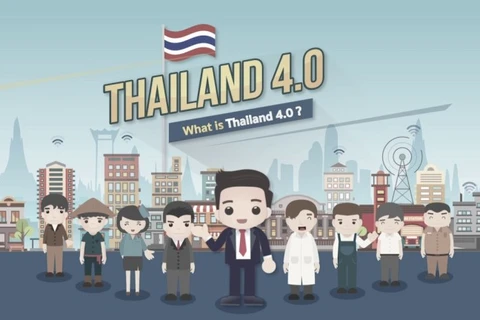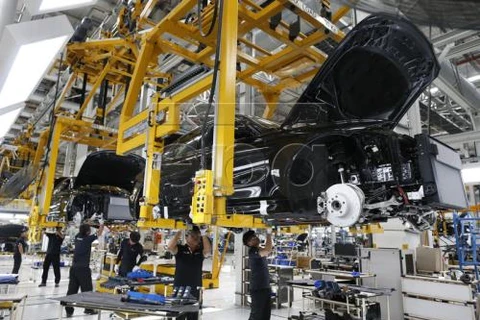Bangkok (VNA) – Thailand should adopt an expansionary policy mix based on fiscal stimulus and monetary easing to achieve stronger and more balanced growth, the International Monetary Fund said.
The fund gave a bright outlook to Thailand’s economic performance this year, with growth rising to 3.9 percent in 2017 and exports taking advantage of a strong recovery of global trade.
According to the Thai Ministry of Commerce, exports in February surged 10.3 percent for the 12th straight month thanks to economic recovery and rising demand of traditional trade partners.
However, the IMF said that export gains have not sufficiently trickled down to household incomes and investments in other sectors.
An infrastructure push coupled with a more accommodative monetary stance would help support faster growth in domestic demand, it noted, adding that monetary easing and commitment to price stability would steer inflation back to the target.
A flexible exchange rate should be the first line of defence against external shocks, with foreign exchange intervention confined to addressing disorderly market conditions.
The Bank of Thailand (BoT) on March 29 raised its economic growth forecast to 4.1 percent from 3.9 percent earlier. The bank has kept its benchmark interest rate unchanged at 1.5 percent, near record lows, since a cut in April 2015. It will review interest rate policy on May 16.
Most of the analysts expect no policy change for the rest of 2018. However, some predict that the BoT may increase interest rate in the second half of the year.-VNA
The fund gave a bright outlook to Thailand’s economic performance this year, with growth rising to 3.9 percent in 2017 and exports taking advantage of a strong recovery of global trade.
According to the Thai Ministry of Commerce, exports in February surged 10.3 percent for the 12th straight month thanks to economic recovery and rising demand of traditional trade partners.
However, the IMF said that export gains have not sufficiently trickled down to household incomes and investments in other sectors.
An infrastructure push coupled with a more accommodative monetary stance would help support faster growth in domestic demand, it noted, adding that monetary easing and commitment to price stability would steer inflation back to the target.
A flexible exchange rate should be the first line of defence against external shocks, with foreign exchange intervention confined to addressing disorderly market conditions.
The Bank of Thailand (BoT) on March 29 raised its economic growth forecast to 4.1 percent from 3.9 percent earlier. The bank has kept its benchmark interest rate unchanged at 1.5 percent, near record lows, since a cut in April 2015. It will review interest rate policy on May 16.
Most of the analysts expect no policy change for the rest of 2018. However, some predict that the BoT may increase interest rate in the second half of the year.-VNA
VNA






















